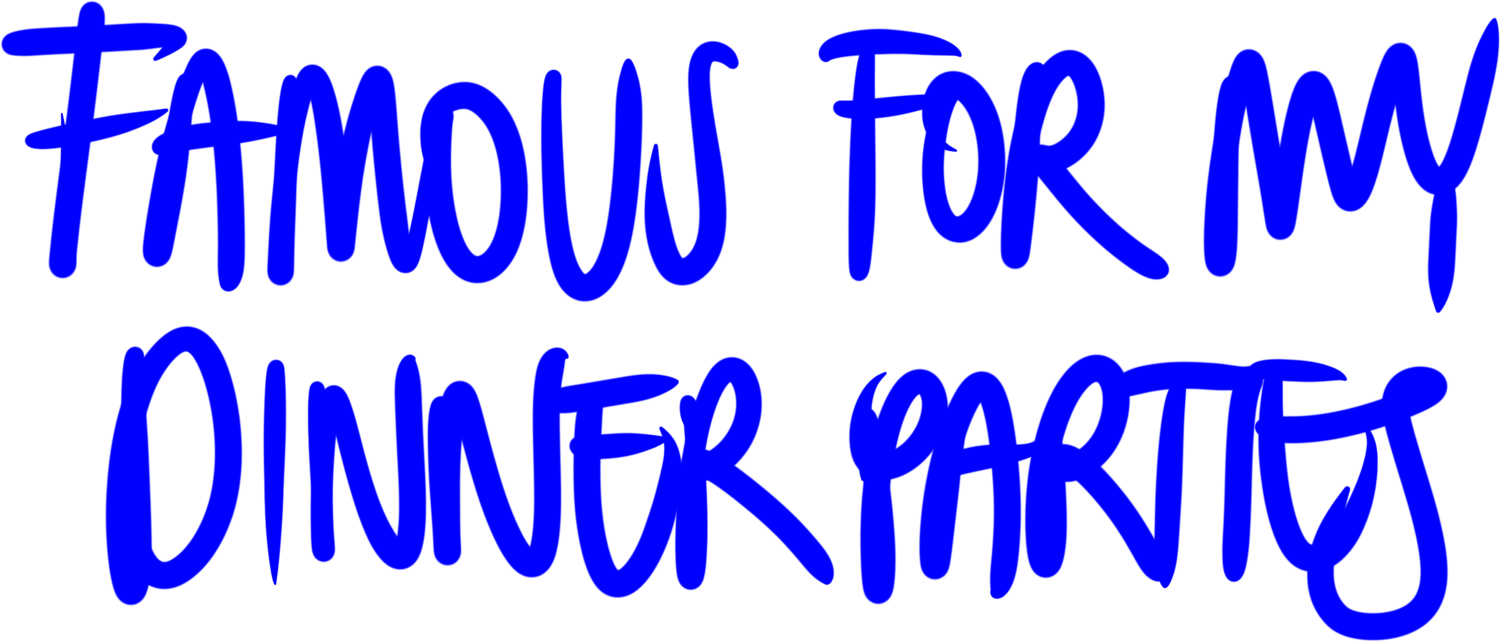LET THEM EAT CAKE, LEAVE THE PLANET, ORDER IN, CANCEL THE STARS AND DRINK THE RIGHT WATER: STORIES OF FOOD AND STATUS
We all like to think we have completely independent tastes, but the fact is that we’re constantly influenced by factors we would not like to publicly own up to. This goes for all things, including food, and one of the leading factors in us making, judging and buying food is the societal status that certain foods are perceived to have — or lack. Maybe you have rolled your eyes at the groceries the person in front of you checked out at the supermarket. Maybe you have frowned at the choice of restaurant your friend suggested last week. Maybe you have felt the gaze of judgment linger upon you as you ran into your colleague while leaving a fast food restaurant. Food and status — as the following five true stories will show — have always been closely linked. Here are a few fun facts about the food of the rich and famous, the working class and everything in between:
BRIOCHE KICKS ROYAL ASS: MARIE-ANTOINETTE’S CAKE CONFUSION
Even if you know hardly anything about Marie-Antoinette, the last queen of France, you probably do know that she, when told about her people’s problems to afford basic necessities like bread, answered: “let them eat cake”. Which is interesting, because she most likely never said it. Knowing that the first written account of this saying comes from a partly fictional text, or that Marie-Antoinette was still a child living in Austria at the time a “great princess” would have uttered these words seems beside the point. When a story is this good, it doesn’t matter if it actually happened. Similar stories can be found all over the world, some dating back even farther than Rousseau’s 1767 account. A sixteenth century German folk tale has a noblewoman wondering why the peasants won’t eat “krosem” — a sweet bread similar to the brioche in the original French quote ascribed to Marie-Antoinette. We’ll never know whether life imitated art or the other way around, but either way, thanks to modern media, we now have distinct proof that leaders are often out of touch with the real problems of the people they serve. The “price of milk question” is a common tactic to figure out a politician’s rootedness in reality. In 1992, then-U.S. president George H.W. Bush flunked exactly this test, which had people wondering what world he lived in. This sense of wonder only grew after the publication of a New York Times article titled “Bush encounters the supermarket, amazed”. While check out scanners had been introduced in supermarkets as early as 1976, it seemed Bush Sr., when shown a scanner at a grocer’s convention, had never seen one before. The article was more or less discredited soon after, but much like the “let them eat cake” quote had proven to be powerful political propaganda some two-hundred years before, these events were keenly used to discredit Bush during his re-election campaign in 1992 — which he lost to Bill Clinton.
SPACE ODDITY: BILLIONAIRE BEANS ON PLANET B
As the richest of this world are building their exit vehicles, while the Earth is flooding, burning, shaking, I couldn’t help but wonder: What are they going to eat? The art of space food is as exact a science as getting a spaceship up there in the first place. The food has to be space stable, nutritious and delicious, which isn’t an easy feat — but those methods have been tried and tested by now, and we’ve heard the stories about freeze-dried ice cream bars. But the thing is, they have to bring that all with them. What’s going to happen when this Earth becomes inhabitable? Will the ultra-rich, the chosen ones, be able to — as Neil Young put it — fly Mother Nature’s silver seed to a new home in the Sun? The Sun doesn’t seem likely, but maybe Mars. Nasa is currently exploring the possibility of hydroponic growth labs in space, where people in theory should be able to grow vegetables, potatoes, soy, wheat, rice and beans. Mars has a gravitational pull like the Earth, albeit a weaker one, which would make farming possible. What a way to get out of the hustle and bustle of life as a billionaire CEO: retreat to Mars, build a little shed, and — straw hat on — live off the land. It’s always been the small things in life.
MY H2EAU IS BETTER THAN YOURS: BATTLE OF THE BOTTLED WATERS
Long before those ridiculous bottles of VOSS water could be seen, perfectly lined up in scarily tidy refrigerators, during every celebrity’s home tour or reality TV show, the talk of the town came bubbly in pear shaped green glass bottles. In the nineteen-eighties, Perrier was perhaps the first water that doubled as a status symbol, warmly embraced by an entire generation of yuppies. The company began marketing its French water in the English-speaking world to the coming-of-age baby boomer, a health and status conscious generation, in the late nineteen-seventies. Perrier was: design water. Perrier was: the champagne of table waters. Perrier was: ‘eau-la-la’, ‘neau calories’ and ‘the fizzy drink greaus up’. Perrier was: $3.50 for a 33cl bottle. Perrier was everywhere — until suddenly it wasn’t. The fad lost its fizz when in nineteen-ninety, millions of bottles had to be recalled after tiny traces of the chemical benzene were found in some samples. “Oh, this is terrible! It’s the end of an era. We’ll all have to go back to Scotch”, playwright Wendy Wasserstein was quoted as saying in the New York Times. Marketing consultant Irma Zandl in the Los Angeles Times felt Perrier’s decline had been inevitable, with or without scandal: “Perrier is really the domain of the older Yuppie. This Evian thing is really a young thing”. Either way, brands such as Evian and San Pellegrino swung in quickly to fill up the temporarily empty Perrier shelves as the company regrouped, but in this newly satisfied market, Perrier never made it back to its former glory. Eau well.
CANCELING CRADOCK: FURIOUS FOODIES SAY ‘NO MORE!’
Among those critical of the current zeitgeist, a big topic of discontent seems to be the success of so-called cancel culture. No one is safe anymore — and yet, Gordon Ramsay, mostly known for inventing toxic masculinity, still graces our TV screens. It is truly a miracle. How different things were for British TV chef Fanny Cradock in 1976, when she fell victim to cancel culture avant la lettre. Fanny, who had grown up in a humble household, at a young age began to fashion herself after famed French chef Auguste Escoffier, aiming to bring haute cuisine into the British home. She landed her first show on the BBC in 1955 and stayed there for the next twenty years. Although her food was beginning to feel a little outdated by the mid-seventies, it was one television appearance that created the perfect storm — and ended her two-decade rule as the unmistaken queen of British food television. On the programme The Big Time, Cradock was selected to be a coach to amateur chef Gwen Troake, who was to prepare a three-course lunch for a public of high caliber at the five-star Dorchester hotel in London. As Troake presented her vision for the menu to Cradock, the famous chef rolled her eyes and pretended to gag, claiming to be “horrified” by the Englishness and sickliness of it all. When Troake objected, she countered with “Yes, dear, but now you’re among professionals.” Yikes. Soon after the episode aired, The Daily Telegraph wrote about Cradock and the incident that “Not since 1940 can the people of England have risen in such unified wrath”, and two weeks later, the BBC terminated her contract. She was punished for being a pretentious, snobby bully; how different things would be for Gordon Ramsay.
BAKE YOUR OWN BREAD: BE YOUR OWN BOSS
While case numbers rise and fall like tidal waves in an ever-repeating, mind-numbing blur, it’s easy to forget things now look very different than at the beginning of this pandemic, some two years ago. You might vaguely remember how avoiding other people combined with too much time and too little to do caused many to take on tasks that had long been delegated to people who probably did it better. You might have discovered that bread could be baked from scratch, in your own oven; that the still-intact root of a spring onion or celery could, when put into a glass of water, produce another — albeit slightly tasteless — vegetable. Matters were taken into hands and it felt good to go back to the garden and fend for oneself. But that is only part of the story. During those same two years, many discovered a dislike for some of the commonplaces of adult life, and the pandemic served as a convenient excuse to outsource them. With supermarkets now a potential health threat, they became a place to avoid. Enter the extremely fast grocery delivery service, which, whether you call it Zapp, Cajoo, Getir or Gorillas, works pretty much the same way everywhere. With many of these companies there are discussions about the labour rights of the ever-growing delivery class, and critical views of the way their operating bases, so called ‘dark stores’, are changing the cityscape. But all that is, seemingly, collateral damage in making the middle class feel like royalty. These companies build on the idea that time must, at all costs, be spent efficiently, and that some people’s time is more important than others’. They also disregard the fact that we, in fact, share our societies with one another, and that we sometimes have to meet each other. But then again, maybe we make up for that by sharing our sourdough starters.
Text and Food: Yannic Moeken
Photography: Junshen Wu
Creative Production: Sandra von Mayer-Myrtenhain













